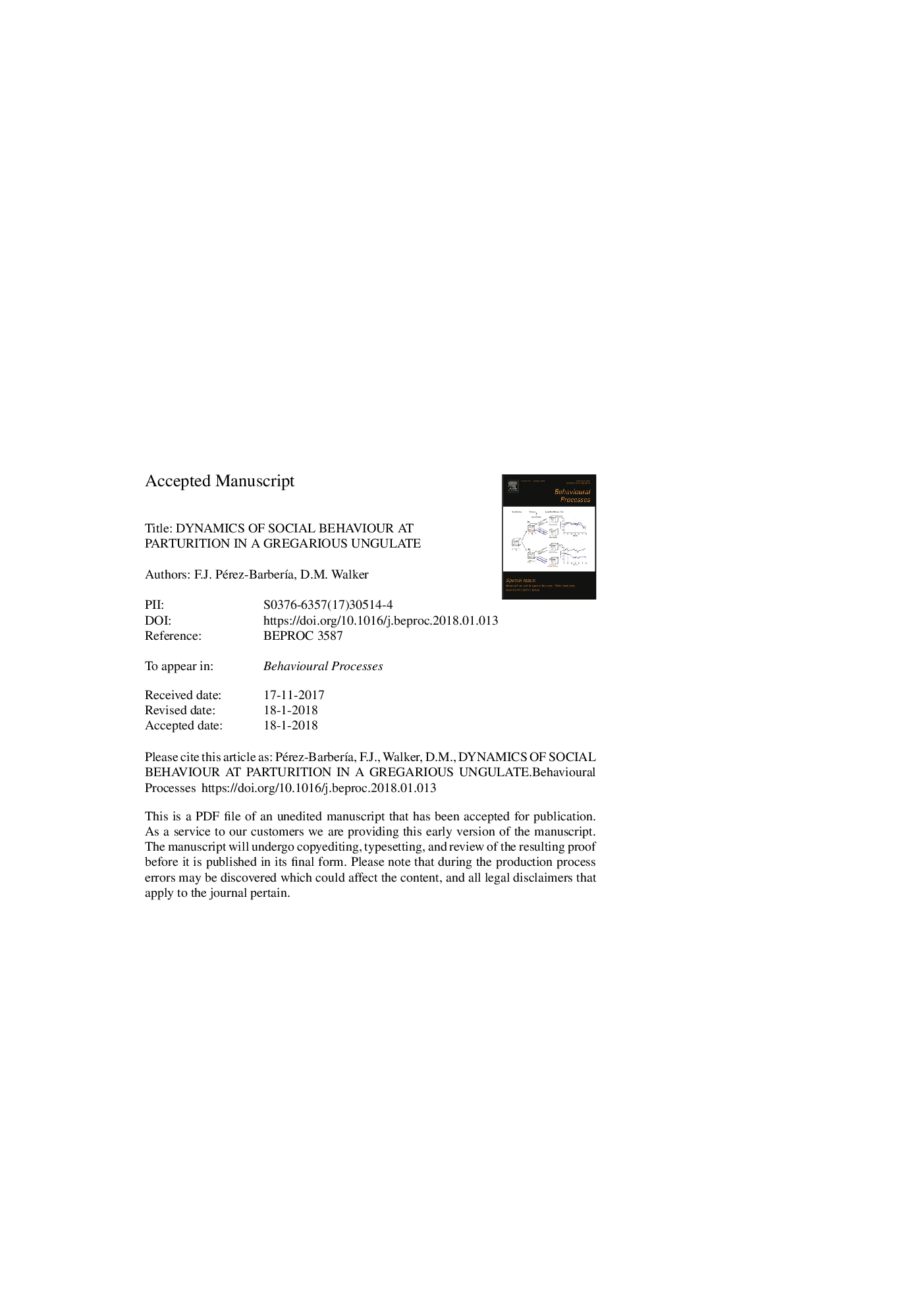| کد مقاله | کد نشریه | سال انتشار | مقاله انگلیسی | نسخه تمام متن |
|---|---|---|---|---|
| 8496990 | 1553131 | 2018 | 32 صفحه PDF | دانلود رایگان |
عنوان انگلیسی مقاله ISI
Dynamics of social behaviour at parturition in a gregarious ungulate
ترجمه فارسی عنوان
دینامیک رفتار اجتماعی در زایمان در یک گوسفند کبدی
دانلود مقاله + سفارش ترجمه
دانلود مقاله ISI انگلیسی
رایگان برای ایرانیان
کلمات کلیدی
تعاملات حیوانی، شبکه های رفتاری، ساختار اجتماعی، گروه، رهبری،
موضوعات مرتبط
علوم زیستی و بیوفناوری
علوم کشاورزی و بیولوژیک
علوم دامی و جانورشناسی
چکیده انگلیسی
Group living is the behavioural response that results when individuals assess the costs vs benefits of sociality, and these trade-offs vary across an animal's life. Here we quantitatively assess how periparturient condition (mother/non-mother) and births affect the dynamics of social interactions of a gregarious ungulate, and how such can help to explain evolutionary hypotheses of the mother-offspring bond. To achieve this we used data of the individual movement of a group of Scottish blackface sheep (Ovis aries) marked with GPS collars and properties of mathematical graphs (networks). Euclidean pair-wise distance between sheep were threshold at different percentiles to determine network links, and these thresholds have a profound effect on the connectivity of the resulting network. Births increased the average pair-wise distance between mothers, and between mothers and non-mothers, with less effect on the distance between non-mothers. Mothers occupied peripheral positions within the flock, more evident following births. Associations between individuals (i.e. network community change) were highly dynamic, though mothers were less likely to change community than non-mothers, especially after births. Births hampered individual communication within the flock (assessed via network closeness centrality), especially in mothers. Overall leadership (lead positioning relative to flock movement) was not associated to reproductive condition, and individual leadership rank was not affected by births. A ten minute GPS acquisition time was adequate to capture complex social dynamics in sheep movement. The results on mother's isolation behaviour support the hypotheses of selection for maternal imprint facilitation, reducing risks to nursing alien offspring, and group/multilevel selection on group formation.
ناشر
Database: Elsevier - ScienceDirect (ساینس دایرکت)
Journal: Behavioural Processes - Volume 150, May 2018, Pages 75-84
Journal: Behavioural Processes - Volume 150, May 2018, Pages 75-84
نویسندگان
F.J. Pérez-BarberÃa, D.M. Walker,
